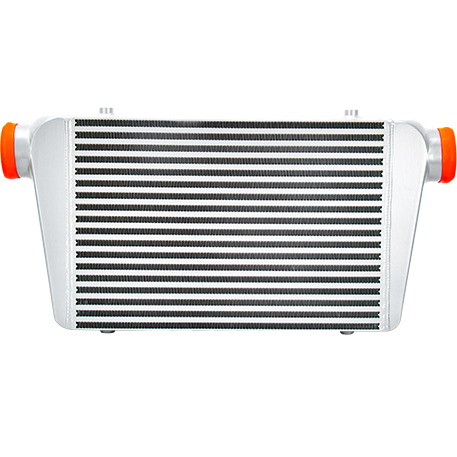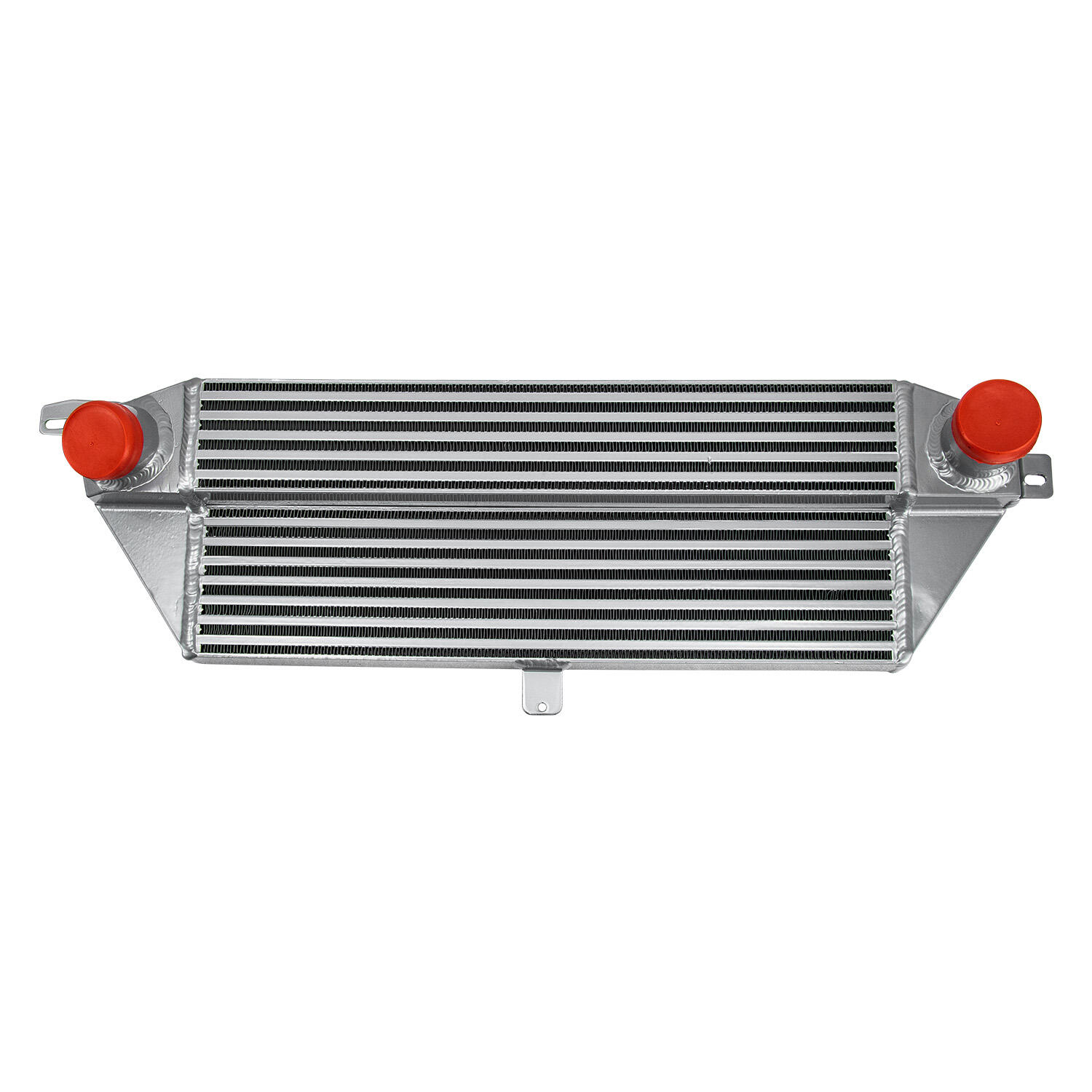De Evolutie van Geavanceerde Koelsystemen in Elektrische Voertuigen
Terwijl de automobielindustrie snel vooruitgaat richting een geëlektrificeerde toekomst, intercooler ondergaat de technologie een revolutionaire transformatie om te voldoen aan de unieke eisen van elektrische voertuigen met turbo. Traditionele intercoolingsystemen worden opnieuw vormgegeven met baanbrekende innovaties die de prestaties van EV's vanaf 2025 en daarna zullen veranderen. Deze vooruitgang is niet slechts een stapsgewijze verbetering – het betekent een fundamentele verschuiving in de manier waarop we thermisch beheer benaderen bij hoogwaardige elektrische aandrijvingen.
De integratie van intercoolertechnologie in elektrische voertuigen betekent een belangrijke afwijking van conventionele kooplossingen. Naarmate fabrikanten de grenzen van EV-prestaties verder opdrijven, wordt het belang van efficiënt thermisch beheer steeds groter. De nieuwste ontwikkelingen in dit vakgebied stellen nieuwe normen voor vermogensoutput, efficiëntie en betrouwbaarheid in elektrische auto's.
Volgende-generatie thermische beheersystemen
Geavanceerde materialen en ontwerpinnovaties
Moderne interkoelertechnologie hanteert geavanceerde materialen die de warmteoverdracht maximaliseren en het gewicht minimaliseren. Koolstofvezelversterkte composieten en geavanceerde aluminiumlegeringen worden specifiek ontwikkeld voor EV-toepassingen en bieden uitstekende thermische geleidbaarheid en verminderde massa. Deze materialen maken compactere ontwerpen mogelijk zonder afbreuk te doen aan de koelrendement, een cruciale factor in de ruimte-efficiënte architectuur van elektrische voertuigen.
Onder andere innovatief ontwerp zijn variabele geometrische kernen en microkanaaltechnologie opgenomen die de luchtstroom patronen en warmteafvoer optimaliseren. Deze functies maken een nauwkeurigere temperatuurregeling en een verbeterde algehele systeemprestatie mogelijk, met name onder hoge belastingsomstandigheden wanneer thermisch beheer het meest kritisch is.
Slimme koelbeheersystemen
Kunstmatige intelligentie en machine learning-algoritmen worden geïntegreerd in intercoolertechnologische systemen om thermische belastingen proactief te voorspellen en te beheren. Deze slimme systemen kunnen koelvereisten anticiperen op basis van rijomstandigheden, weerspatronen en de prestatie-eisen van het voertuig, en passen ze in realtime de koelvloeistofstroom en ventilatorsnelheden aan voor optimale efficiëntie.
De toepassing van geavanceerde sensoren en predictieve analyses stelt deze systemen in staat om ideale werkttemperaturen te behouden terwijl het energieverbruik wordt geminimaliseerd. Deze intelligente aanpak van thermisch beheer vormt een belangrijke stap voorwaarts in koeltechnologie voor elektrische voertuigen.

Integratie met batterijthermisch beheer
Geïntegreerde koelcircuits
Moderne interkoelertechnologie wordt naadloos geïntegreerd met systemen voor thermisch batterijbeheer, waardoor gecombineerde koelcircuits ontstaan die de algehele voertuigefficiëntie optimaliseren. Deze holistische aanpak zorgt ervoor dat zowel aandrijfcomponenten als batterijpakketten hun optimale werktemperatuur behouden onder verschillende rijomstandigheden.
De gesynchroniseerde werking van deze systemen vermindert het energieverbruik terwijl de prestaties worden verbeterd en de levensduur van de batterij wordt verlengd. Geavanceerde stromingsbeheertechnieken maken een dynamische herverdeling van koelcapaciteit mogelijk op basis van de real-time thermische eisen van verschillende voertuigsystemen.
Warmteteruggewin en energie-efficiëntie
Innovatieve warmteteruggewinningsystemen worden opgenomen in moderne interkoelertechnologie, waarbij thermische energie wordt opgevangen en hergebruikt die anders verloren zou gaan. Deze teruggewonnen warmte kan worden gebruikt voor verwarming van de cabine of temperatuurbeheer van de batterij, waardoor de algehele voertuigefficiëntie wordt verbeterd en het bereik wordt verlengd.
De integratie van faseveranderende materialen en thermische opslagoplossingen maakt efficiënter energiemanagement mogelijk, met name in extreme weersomstandigheden of tijdens ritten met hoge prestaties.
Prestatie-implicaties voor elektrische voertuigen
Vergroot vermogen en acceleratie
Geavanceerde intercooler-technologie draagt rechtstreeks bij aan verbeterd vermogen en acceleratie in elektrische voertuigen. Door de optimale werkttemperaturen te behouden, kunnen deze systemen motoren en vermogenselektronica gedurende langere tijd op piekrendement laten werken, wat uitmondt in betere prestaties en een consistenter vermogensaanbod.
Het vermogen om thermische belastingen effectiever te beheren, stelt bovendien in staat om hogere duurvermogens te realiseren, met name voordelen tijdens prestatieritten of op het circuit. Deze verbeterde thermische beheerscapaciteit is cruciaal voor de volgende generatie high-performance elektrische voertuigen.
Reichweite- en efficiëntievoordelen
Efficiënte intercoolertechnologie speelt een cruciale rol bij het maximaliseren van de actieradius en de algehele efficiëntie in elektrische voertuigen. Door de thermische management te optimaliseren, verminderen deze systemen energieverliezen en verbeteren ze de efficiëntie van zowel aandrijflijn als batterijensystemen.
De toepassing van geavanceerde koeloplossingen heeft onder bepaalde omstandigheden potentie laten zien voor actieradiusverbeteringen van wel 10-15%, met name tijdens hardrijden of in extreme weersomstandigheden.
Toekomstige ontwikkelingen en branche trends
Opkomende Technologieën
De toekomst van intercoolertechnologie is nauw verbonden met ontwikkelingen in nanotechnologie en geavanceerde materiaalkunde. Onderzoek naar grafene-gebaseerde warmtewisselaars en quantumkoeloplossingen belooft de thermische management in elektrische voertuigen verder te revolutioneren.
Daarnaast kan de integratie van solid-state koeltechnologieën en magnetokalorische materialen leiden tot nog efficiëntere en compactere koeloplossingen voor toekomstige elektrische voertuigen.
Productie- en kostenoverwegingen
Naarmate de productie oploopt en de productieprocessen steeds verder worden verfijnd, wordt verwacht dat de kosten van geavanceerde intercoolertechnologie aanzienlijk zullen dalen. Deze kostenreductie zal high-performance koopoplossingen toegankelijker maken voor verschillende voertuigsegmenten.
Innovaties in productietechnieken, waaronder 3D-printen en geavanceerde vormgevingstechnieken, maken complexere en efficiëntere ontwerpen mogelijk, terwijl de productiekosten worden verlaagd en de betrouwbaarheid wordt verbeterd.
Veelgestelde Vragen
Hoe verschilt de intercoolertechnologie tussen traditionele verbrandingsmotoren en EV's?
Terwijl traditionele verbrandingsmotoren intercoolers voornamelijk gebruiken voor het koelen van gecomprimeerde lucht van turboladers, richt de intercoolertechnologie voor EV's zich op het beheren van warmte van elektromotoren, vermogenselektronica en batterijensystemen. De systemen in EV's zijn doorgaans geïntegreerder en geavanceerder, en bevatten vaak slimme besturingssystemen en meerdere koelcircuits.
Welk effect heeft geavanceerde koeling op de levensduur van EV-batterijen?
Geavanceerde interkoelertechnologie helpt om de optimale batterijtemperatuur te behouden, wat de levensduur en prestaties van de batterij aanzienlijk kan verlengen. Juiste thermische beheersing kan degradatie voorkomen en zorgen voor een consistente laad- en ontlaadefficiëntie gedurende de levensduur van de batterij.
Zullen toekomstige koelsystemen compatibel zijn met snel laden?
Interkoelertechnologie van de volgende generatie wordt specifiek ontwikkeld om de thermische belastingen die gepaard gaan met uiterst snel laden, te kunnen verwerken. Deze systemen zullen in staat zijn de toegenomen warmte die tijdens snel laden wordt gegenereerd, te beheren en tegelijkertijd veilige werktemperaturen behouden voor alle voertuigcomponenten.

